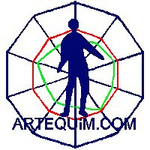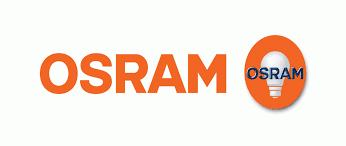Description

Cepenergy Management

devtech m2m
Comprehensive Overview: Cepenergy Management vs devtech m2m
Cepenergy Management and Devtech M2M operate within the energy management and machine-to-machine (M2M) communication sectors, respectively. Here’s a comprehensive overview of each:
Cepenergy Management
a) Primary Functions and Target Markets:
- Primary Functions: Cepenergy Management provides energy management solutions focusing on optimizing energy usage, reducing costs, and enhancing sustainability. Key functions include real-time energy monitoring, predictive analytics, and automated control systems.
- Target Markets: The primary target markets for Cepenergy Management are commercial buildings, industrial facilities, and utilities. The solution caters to businesses looking to reduce their carbon footprint and improve energy efficiency.
b) Market Share and User Base:
- Cepenergy Management has carved out a niche in the energy management sector, particularly among medium to large enterprises. Its market share is moderate but growing as more organizations prioritize sustainability. The user base consists of industries such as manufacturing, healthcare, and educational institutions that require substantial energy resources.
c) Key Differentiating Factors:
- Integrated Analytics: A strong focus on analytics to provide insights and forecasts based on energy consumption patterns.
- Customizable Solutions: Modules can be tailored to different industry needs, providing flexibility.
- Sustainability Focus: Emphasis on reducing carbon emissions, which aligns with current global sustainability trends.
Devtech M2M
a) Primary Functions and Target Markets:
- Primary Functions: Devtech M2M specializes in machine-to-machine communication, enabling devices and systems to exchange information seamlessly. Key functions include remote monitoring, automated data collection, and connected device management.
- Target Markets: The solution is targeted towards industries utilizing IoT technologies with a need for robust data communication networks, such as telecommunications, logistics, and smart city projects.
b) Market Share and User Base:
- The market for M2M communication is broad and highly competitive, with Devtech M2M holding a solid position. While not the largest player, it secures a respectable share with a varied user base in sectors that heavily invest in IoT technology and connectivity solutions.
c) Key Differentiating Factors:
- Robust Connectivity: Offers reliable communication solutions that ensure minimal downtime and high data transfer rates.
- Versatile Integration: Can integrate with a wide range of devices and platforms, making it highly adaptable to various use cases.
- Scalability: Users can easily scale their systems up or down, making it cost-effective for businesses of different sizes.
Comparing Cepenergy Management and Devtech M2M
While both products operate in the tech solutions market, they address distinct needs and use cases. Cepenergy Management is focused on optimizing energy use and reducing environmental impact, whereas Devtech M2M is all about facilitating secure, efficient communication between devices across networks. Their divergences in target industries, core functionalities, and technological focus contribute to their differentiated market positioning. In terms of competition, both are among several solutions available, but their specific features and capabilities help them stand out in their respective niches.
Contact Info

Year founded :
Not Available
Not Available
Not Available
Not Available
Not Available

Year founded :
Not Available
Not Available
Not Available
Not Available
Not Available
Feature Similarity Breakdown: Cepenergy Management, devtech m2m
To provide a feature similarity breakdown between Cepenergy Management and Devtech M2M, let’s look at their core functions, user interfaces, and unique features. Please note that exact details may vary based on specific versions or updates to these products.
a) Core Features in Common
Both Cepenergy Management and Devtech M2M likely offer features associated with energy management and machine-to-machine (M2M) communication, respectively. Commonalities might include:
-
Data Collection: Both platforms are expected to gather data from various sensors and devices, facilitating comprehensive monitoring and reporting.
-
Real-time Monitoring: They likely provide tools for real-time tracking of system performance and energy consumption.
-
Analytics and Reporting: Both systems probably offer analytics services to help users understand usage patterns, optimize operations, and generate various reports.
-
Alert and Notification Systems: Alerts for anomalies, maintenance needs, or performance issues are common features in both sectors.
-
Integration Capabilities: Both platforms should be able to integrate with other software tools or databases to enhance functionality and ensure comprehensive management.
b) User Interface Comparisons
The user interface (UI) design for these solutions might have differences based on their target users and specific functionalities, but generally, they include:
-
Dashboard: Both platforms would have a dashboard as a central feature, offering a summary of data and key performance indicators (KPIs) with widgets and graphs.
-
Customization Options: Each system likely allows a degree of customization to fit different user needs—although the specific extent and ease of customization can vary.
-
Navigation: Intuitive navigation is crucial; both interfaces would emphasize ease of use but may differ in layout and user experience design principles.
-
Mobile Accessibility: Given the demands for mobility, both platforms might offer mobile versions or apps, though the extent of feature availability and usability on mobile devices can vary.
c) Unique Features
Cepenergy Management
-
Energy-Specific Tools: Cepenergy may offer specialized features like load forecasting, advanced energy analytics, and specific energy-saving insights not conventionally part of M2M platforms.
-
Regulatory Compliance Tools: If focused on energy management, there might be features tailored towards ensuring compliance with energy regulations and standards.
Devtech M2M
-
Broad Device Support: Being M2M-focused, Devtech might support a wider range of devices and platforms, useful for industries requiring extensive and diverse connectivity solutions.
-
Focused on Connectivity: Features related to network management, device provisioning, and communication protocols could be more advanced, catering to organizations needing robust M2M interaction capabilities.
-
Specific Industry Applications: Devtech might offer adaptable solutions for various industrial applications like asset tracking, remote monitoring, or automation processes which might not be a focus in energy-specific solutions.
In conclusion, while both Cepenergy Management and Devtech M2M platforms share similarities, especially in data management and analytics, they serve different primary functions which dictate their unique features and interfaces. To evaluate them effectively, a tailored analysis focusing on specific user needs and business goals would be essential.
Features

Not Available

Not Available
Best Fit Use Cases: Cepenergy Management, devtech m2m
Cepenergy Management and devtech m2m are platforms that serve different needs primarily within the energy management and machine-to-machine communication spaces, respectively. Here's a breakdown of their best fit use cases:
Cepenergy Management
a) For what types of businesses or projects is Cepenergy Management the best choice?
-
Energy-Intensive Industries: Businesses in manufacturing, utilities, and heavy industries that require detailed monitoring, optimization, and efficiency in energy usage would benefit significantly from Cepenergy Management. It helps in managing energy consumption and reducing operational costs.
-
Renewable Energy Projects: Companies involved in solar, wind, or other renewable projects can use Cepenergy Management to monitor and optimize the performance of their installations, ensuring they are running efficiently and sustainably.
-
Commercial Real Estate: For large commercial buildings, malls, or office complexes, the platform can be used to manage energy usage across multiple facilities, providing insights into how to reduce consumption and improve sustainability.
-
Smart Cities Initiatives: Municipal projects aimed at improving energy efficiency through smart grids and intelligent energy management systems would benefit from Cepenergy Management's capabilities.
devtech m2m
b) In what scenarios would devtech m2m be the preferred option?
-
Telecommunications: Companies involved in the telecommunications industry can use devtech m2m for managing machine-to-machine communications, enabling efficient data transfer between devices and minimizing downtime.
-
IoT Solution Providers: Businesses creating Internet of Things solutions, such as smart home devices or industrial IoT equipment, can utilize devtech m2m for robust device connectivity and management.
-
Logistics and Transportation: Organizations that rely heavily on fleet management and require real-time tracking and data communication for vehicles can benefit from the machine-to-machine capabilities of devtech m2m.
-
Health Care Sector: With the increasing adoption of connected medical devices and remote patient monitoring solutions, devtech m2m offers reliable connectivity and data management services for this critical industry.
d) How do these products cater to different industry verticals or company sizes?
-
Industry Verticals:
- Energy Management: Cepenergy Management is versatile enough to serve a variety of sectors that prioritize energy efficiency and sustainability, while devtech m2m targets industries relying on connected devices and real-time data communication.
- IoT and Connectivity: devtech m2m’s focus on seamless machine-to-machine communication can be applied across various sectors, including health care, logistics, smart homes, and smart cities.
-
Company Size:
- Small to Mid-Sized Enterprises (SMEs): Both platforms can be tailored to fit the budgetary and operational needs of SMEs which may have more focused or limited scope projects, allowing them to improve specific process efficiencies.
- Large Enterprises: Larger organizations with complex energy consumption profiles or extensive IoT deployments can leverage the scalability of both solutions to manage large volumes of data and device interactions, ensuring resource optimization and robust network management.
In summary, while Cepenergy Management excels in optimizing energy use for a variety of industries, devtech m2m shines in scenarios requiring robust machine-to-machine communication, with both offerings being adaptable to various company sizes and sector-specific needs.
Pricing

Pricing Not Available

Pricing Not Available
Metrics History
Metrics History
Comparing undefined across companies
Conclusion & Final Verdict: Cepenergy Management vs devtech m2m
To reach a comprehensive conclusion and provide a final verdict on the products from Cepenergy Management and Devtech M2M, it is essential to analyze and compare the offerings based on their value, pros and cons, and recommendations for potential users.
a) Best Overall Value
Best Overall Value: Devtech M2M
Reasoning: While both Cepenergy Management and Devtech M2M offer competitive solutions, Devtech M2M stands out in terms of overall value due to its robust feature set, scalability, and cost-effectiveness. Devtech M2M’s platform is particularly advantageous for organizations seeking extensive connectivity and data integration capabilities, making it more versatile for diverse operational needs. Additionally, its competitive pricing model provides significant long-term savings for enterprises looking to expand their IoT infrastructure.
b) Pros and Cons
Cepenergy Management:
-
Pros:
- Specializes in energy management systems, offering tailored solutions for enterprises focused on sustainability.
- Provides user-friendly interfaces and intuitive analytics, simplifying energy consumption monitoring and management.
- Strong customer support with advisory services for optimizing energy use.
-
Cons:
- Limited in broader IoT applications outside of energy management.
- May require additional integration efforts for compatibility with other non-energy IoT ecosystems.
- Potentially higher initial costs for deployment, given its specialized nature.
Devtech M2M:
-
Pros:
- Comprehensive IoT platform capable of supporting a wide range of use cases beyond energy management.
- Highly scalable and adaptable to various industry needs, offering greater flexibility for expanding businesses.
- Competitive pricing and modular structure, allowing businesses to only pay for necessary features.
-
Cons:
- Might have a steeper learning curve due to its extensive feature set for non-technical users.
- Some users may find the customization options overwhelming without dedicated IT support.
- In some specific cases, energy-focused functionalities might not be as advanced as those of specialized energy management solutions.
c) Recommendations for Users
Recommendations for Users Considering Both Options:
-
Assess Your Core Needs:
- If your primary focus is on advanced energy management and optimization, Cepenergy Management may be more aligned with your goals, particularly for enterprises heavily focused on sustainability and energy reduction.
- Conversely, if you require a multifaceted IoT solution that integrates easily with various IoT devices and can scale with your business as it grows, Devtech M2M is likely the better fit.
-
Consider Scalability and Future Growth:
- Organizations anticipating rapid scale or diversification into broader IoT applications should lean towards Devtech M2M for its flexibility.
-
Budget and Resource Availability:
- While both solutions are robust, consider the initial and ongoing costs associated with each platform to ensure it aligns with your financial planning and resource availability.
-
Technical Support and Integration Needs:
- Evaluate which platform offers better support and integration options that fit your existing technological environment, reducing time and cost spent on deployment.
Final Verdict: Devtech M2M provides better overall value for organizations seeking comprehensive IoT solutions with extensive scalability. However, for businesses with a primary focus on energy management, Cepenergy Management offers specialized tools and insights tailored to that niche. Users should base their decision on their specific operational needs, budget, and future growth plans.
Add to compare
Add similar companies




